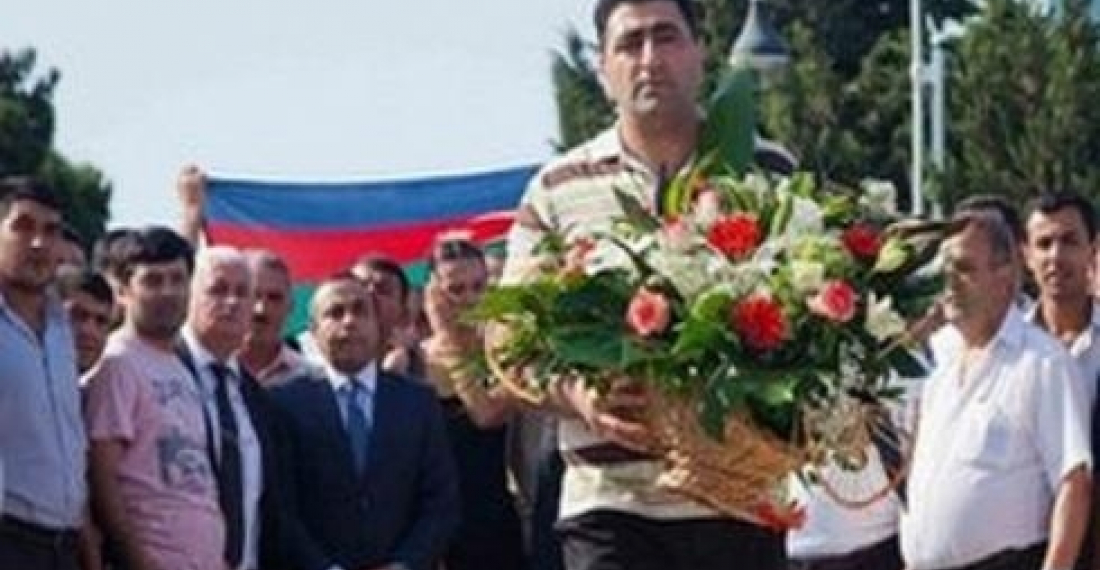Рамиль Сафаров, азербайджанский офицер, который в 2004 году зарезал во сне армянского офицера, во время участия в курсах НАТО в Венгрии, в настоящее время является свободным человеком. В пятницу он был отправлен венгерскими властями обратно в Азербайджан.
Сафаров был признан виновным и приговорен к пожизненному заключению венгерским судом. Правительство Венгрии на этой неделе согласилось выслать его для продолжения отбывания наказания в Азербайджан. По прибытию назад в Баку он был помилован президентом Ильхамом Алиевым и освобожден.
Политический редактор Commonspace.eu сделал следующий комментарий:
"Это последняя глава в драме, которая вызвала накал страстей как в Армении, так и в Азербайджане. В Армении действия Сафарова были усилены фотографиями страдании армян в руках тюркских народов. Когда в 2004 году произошло это убийство в Армении тогдашний президент Роберт Кочарян заявил, что это подтверждает, насколько армяне и азербайджанцы генетически различны.
Однако, в Азербайджане убийство было воспринято как героический поступок, часть процесса возмездия против унижения, которое Азербайджан пережил от рук Армении в войне за Нагорный Карабах, и последующие потери территории.
Инцидент стал для обоих правительств неожиданностью и на мгновение, в то время казалось, что руководства в Баку и Ереване потеряло контроль над ситуацией и просто реагировало на популярные эмоции.
Сейчас ситуация совсем другая. Решение об освобождении Сафарова сразу же по прибытию в Баку было принято президентом Азербайджана. Президенту было доверено освобождение Сафарова и убедить венгерское руководство выслать его обратно в Азербайджан. Это решение является очень популярным в Азербайджане и президента рассматривают как героя за его действия. Должностные лица правительства Азербайджана напомнили людям, что тот факт, что Венгрия согласилась послать Сафаров в Баку является примером большого уважения и влияния политики МИД Азербайджана.
Венгрия заявляет, что у нее были заверения от правительства Азербайджана, что осужденный проведёт остаток дней своих в азербайджанской тюрьме, но, в конце концов, как только он был отправлен обратно он стал ответственым азербайджанской правовой системы.
Армения обвиняет правительство Венгрии, разорвав дипломатические отношения с ней. Сейчас на президента Саргсяна оказывается огромное давление с тем, чтобы предпринять еще больше. У Саргсяна президентские выборы менее чем через шесть месяцев. И случившееся пришлось не в лучшее время для него и ему придется действовать жестко в этом или в противном случае он станет политически обречен.
Освобождение Сафарова будет иметь последствия на регион, на армяно-азербайджанские отношения, на политику двух стран и их международные отношения."
Источник: commonspace.eu
Фото: Приветствие Рамиля Сафарова в Баку (фото любезно предоставлено BBC).







